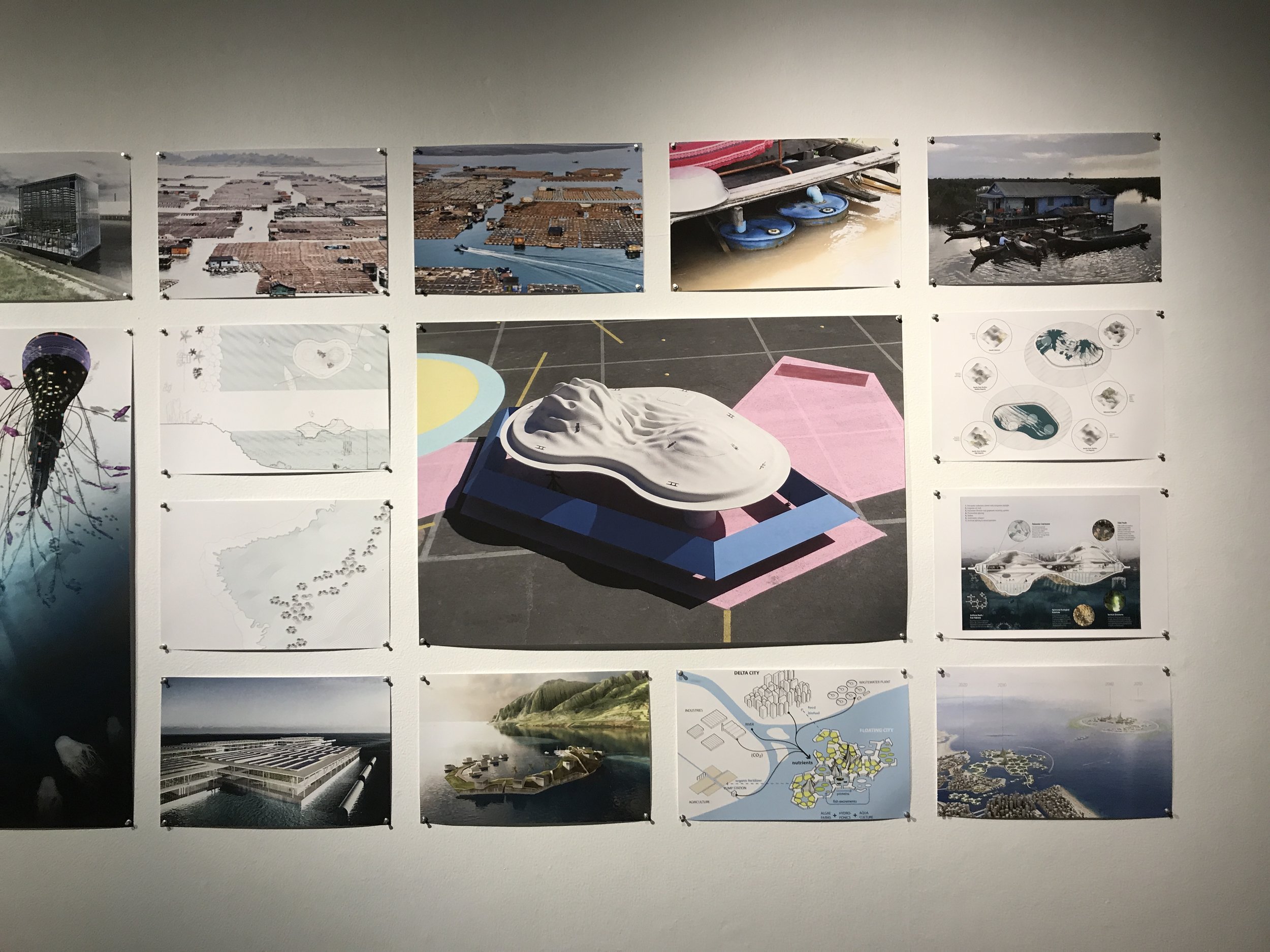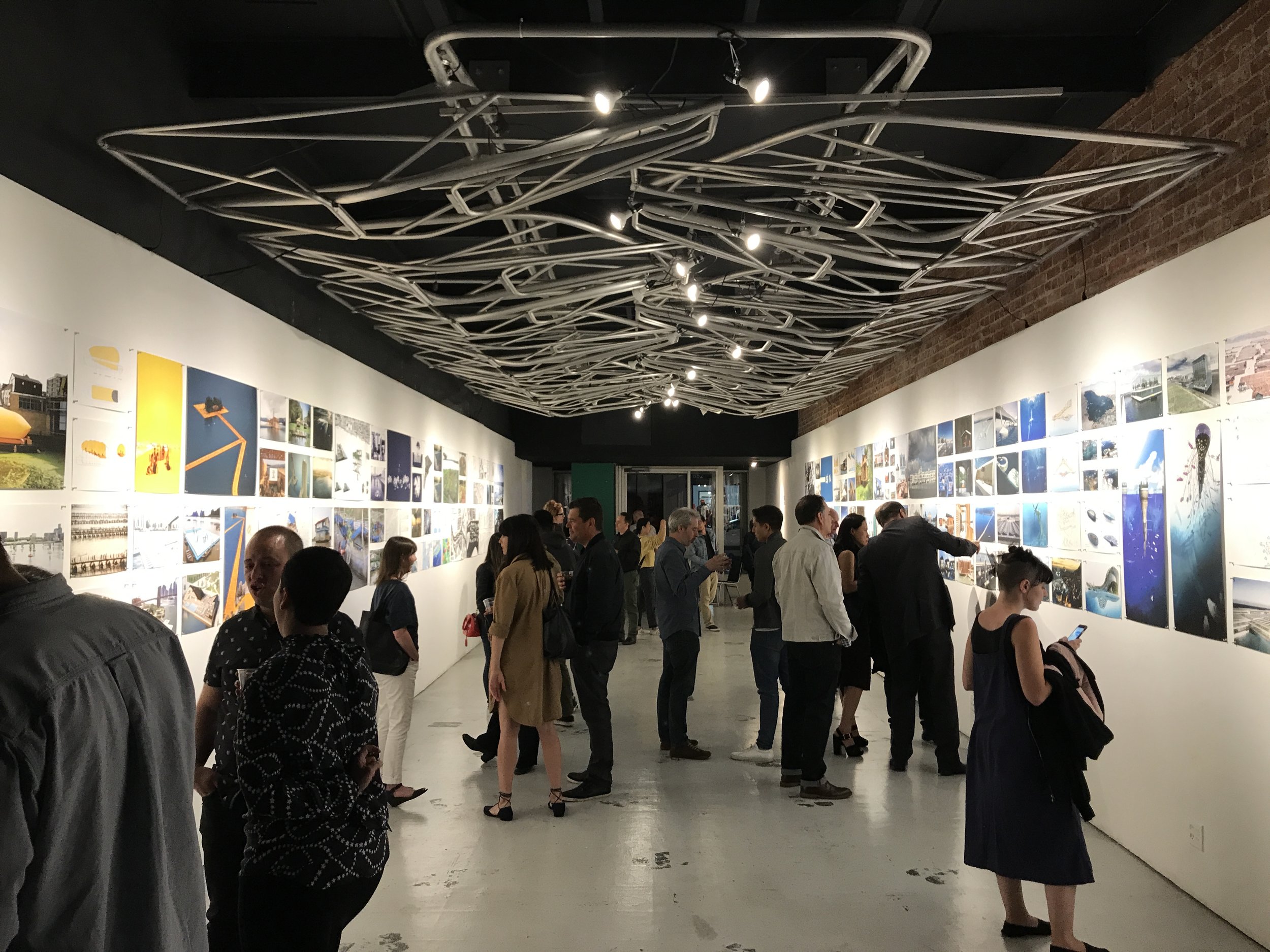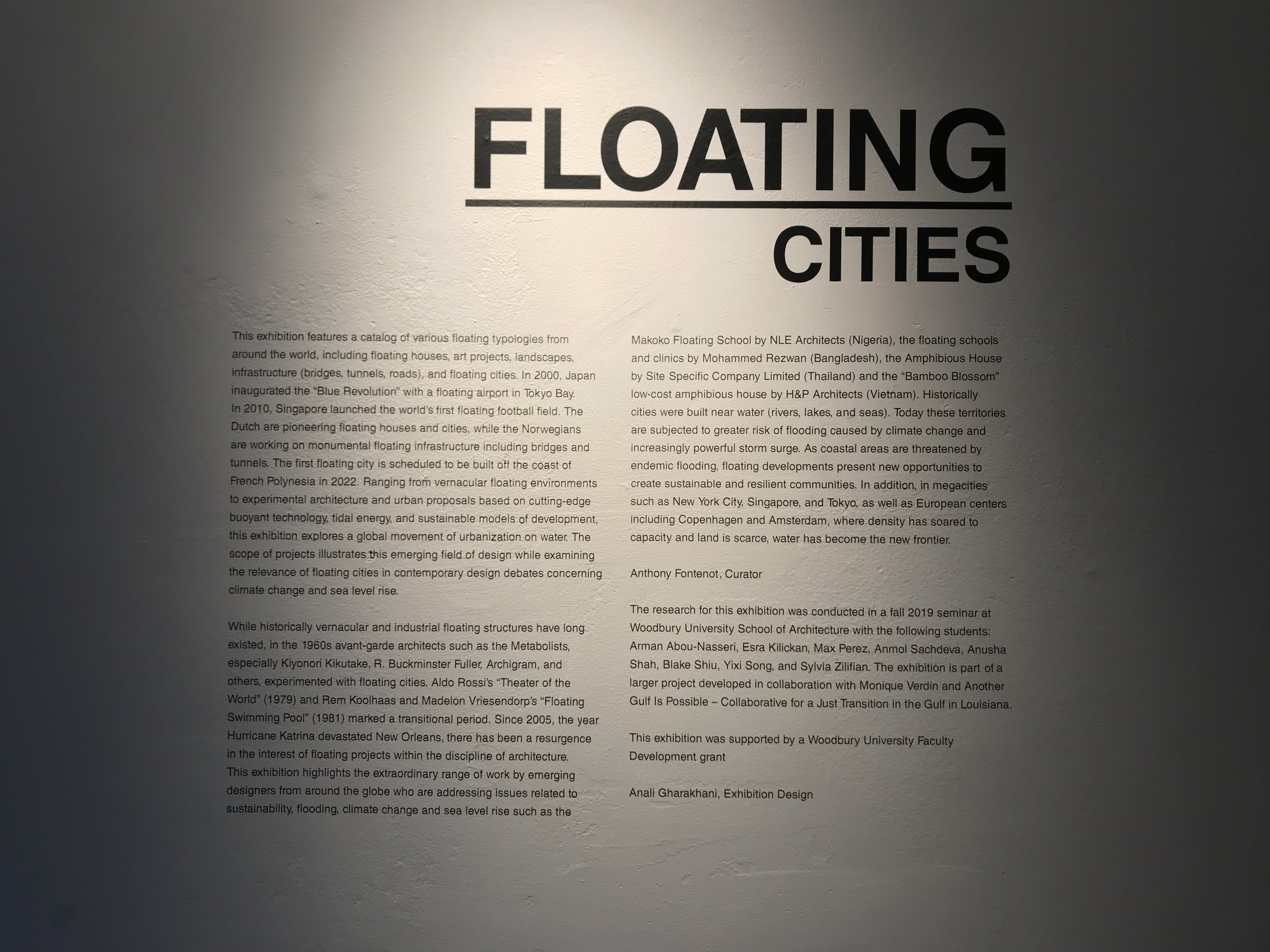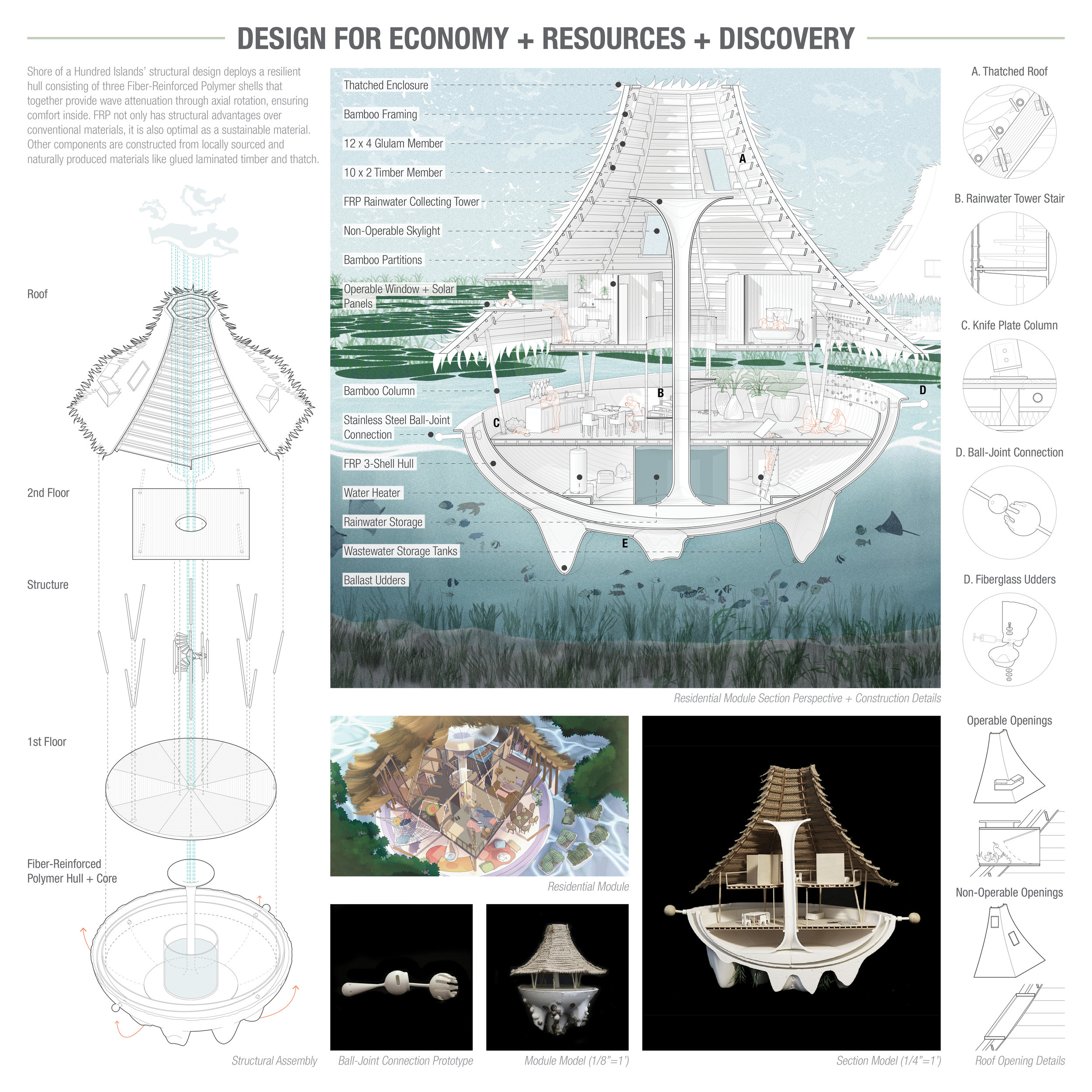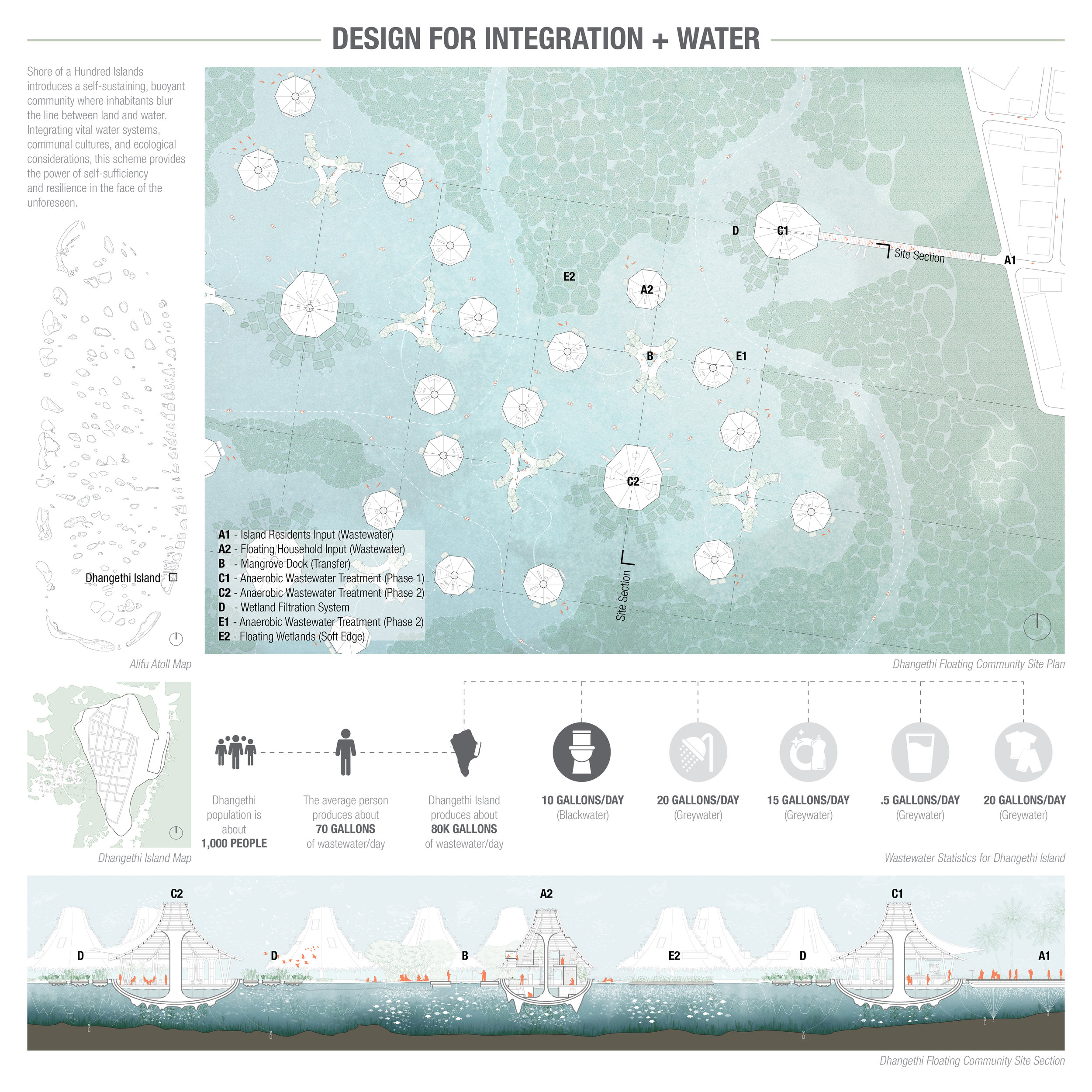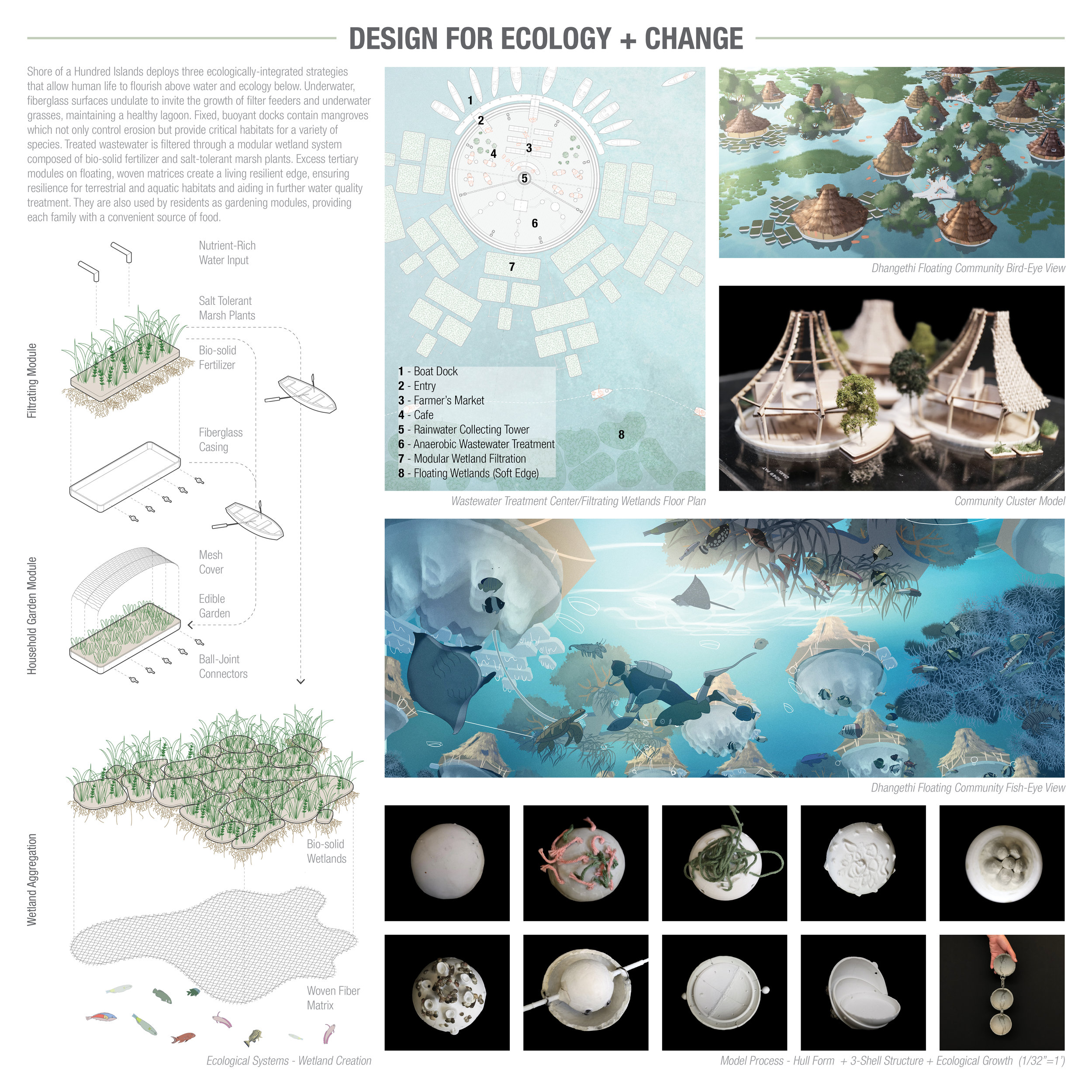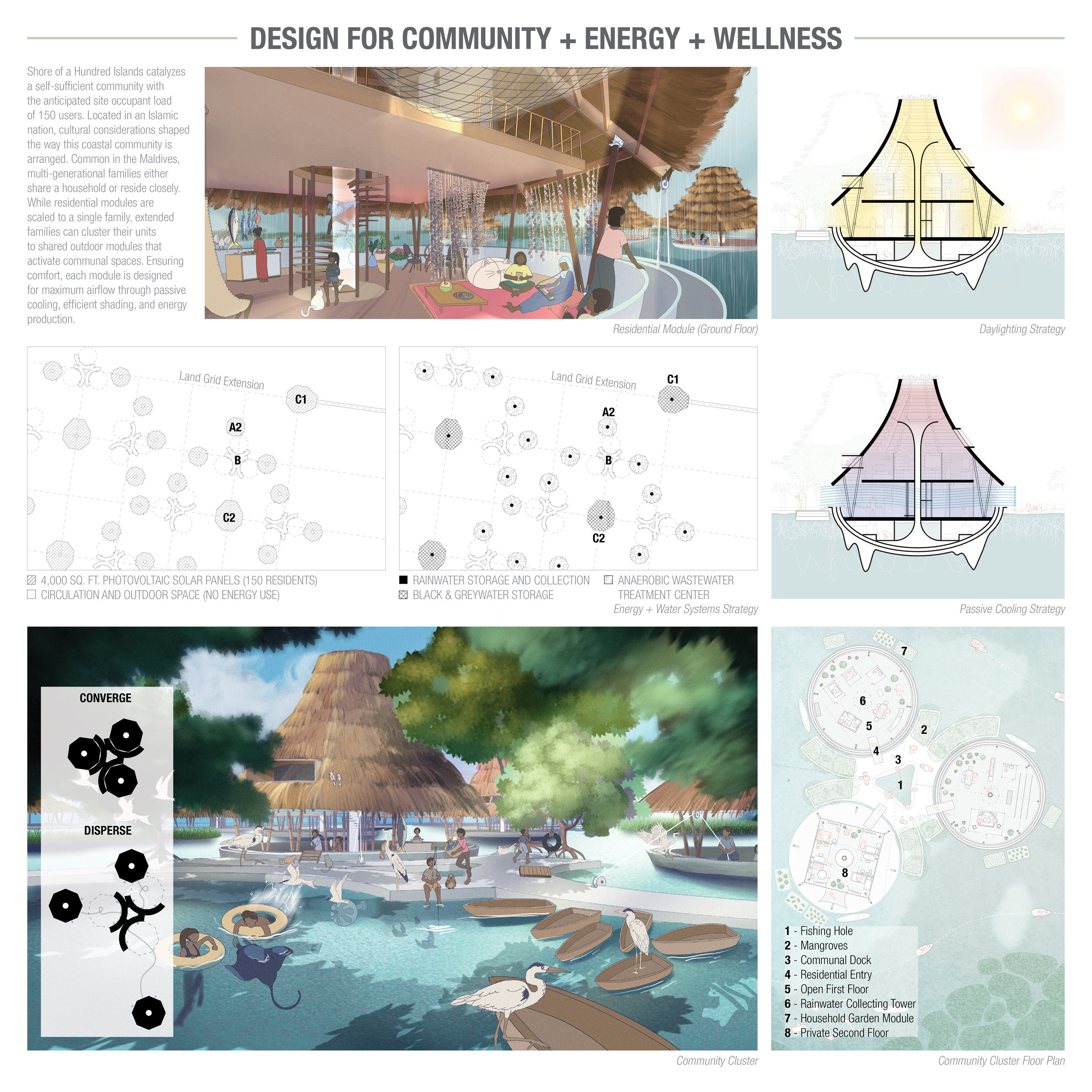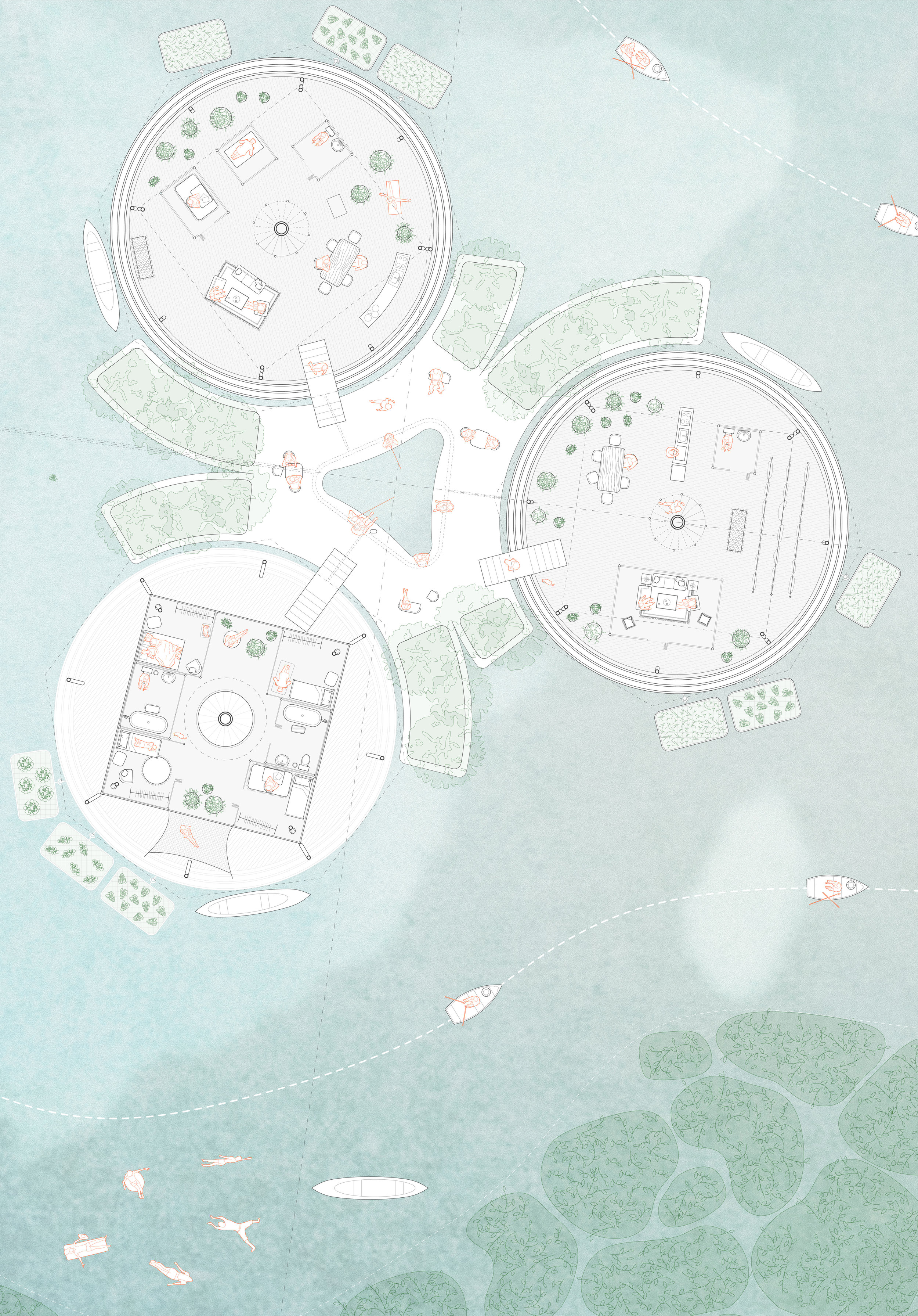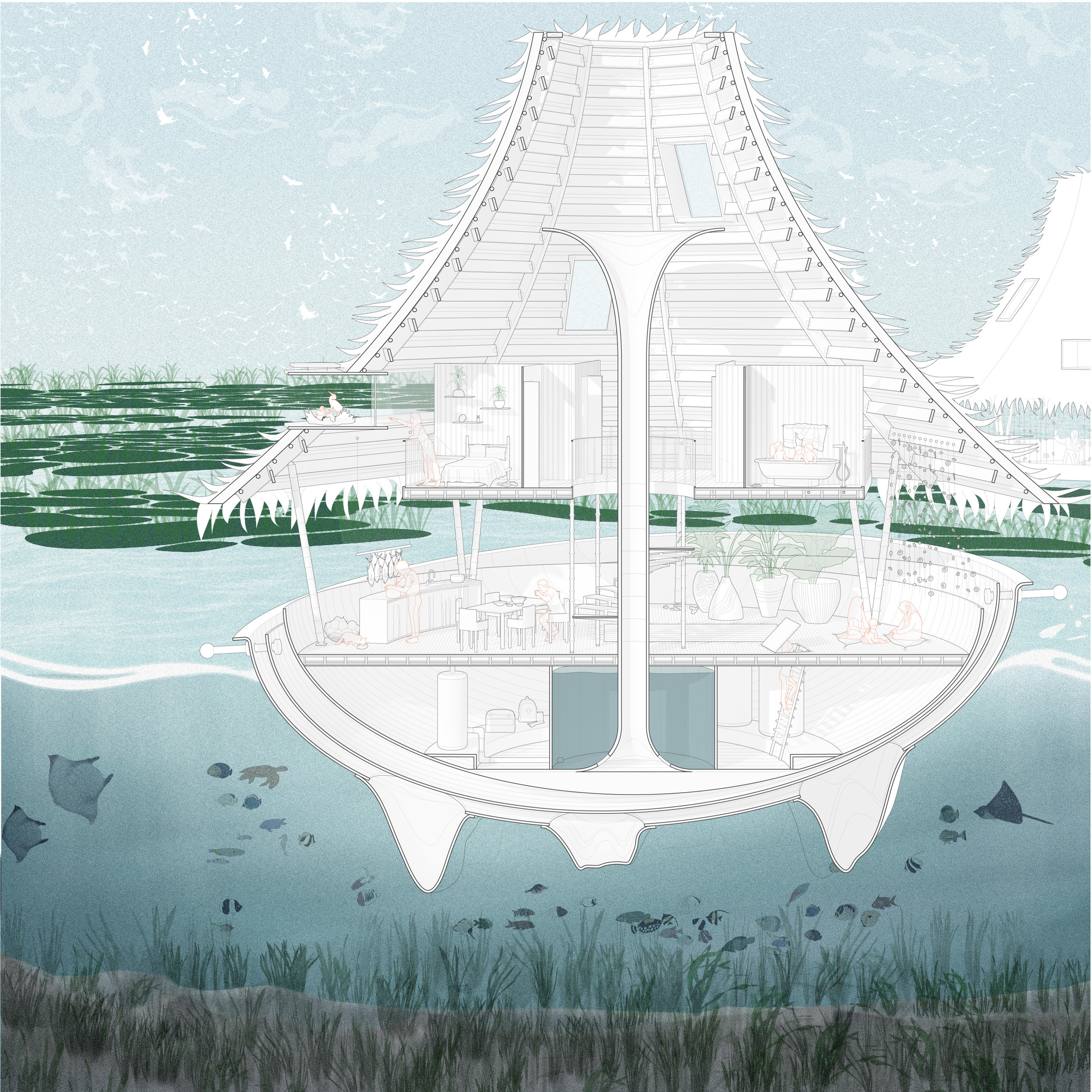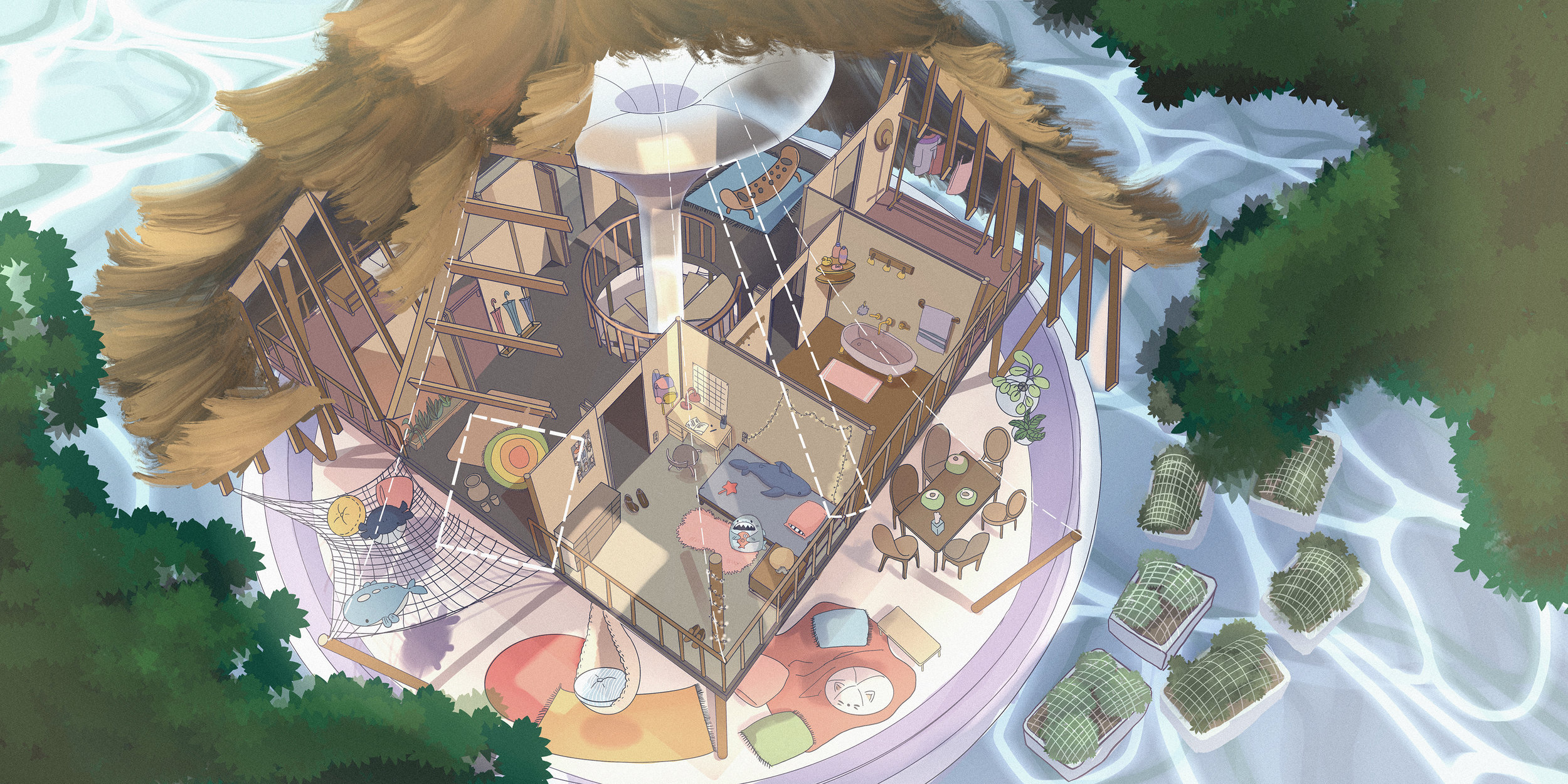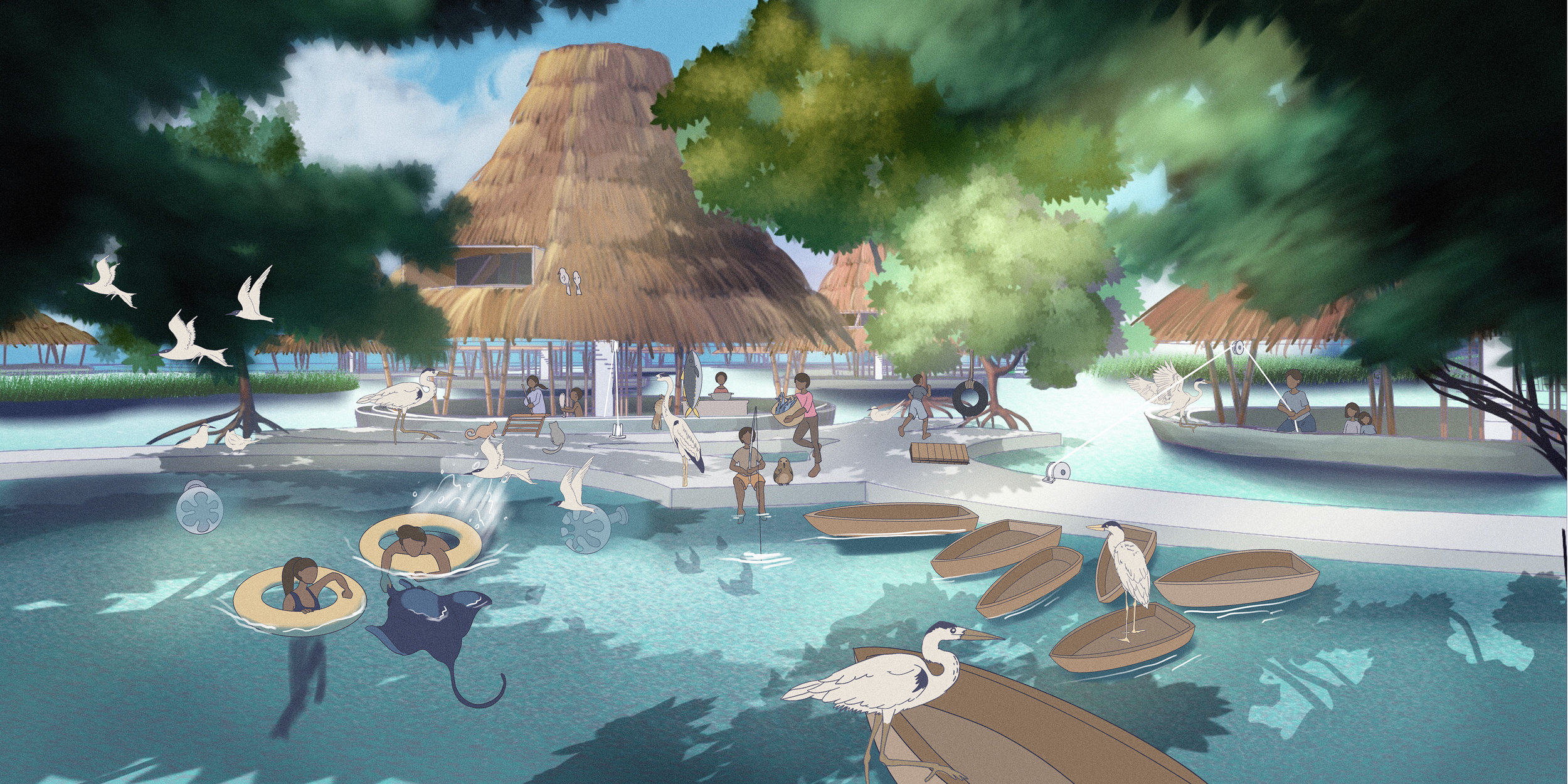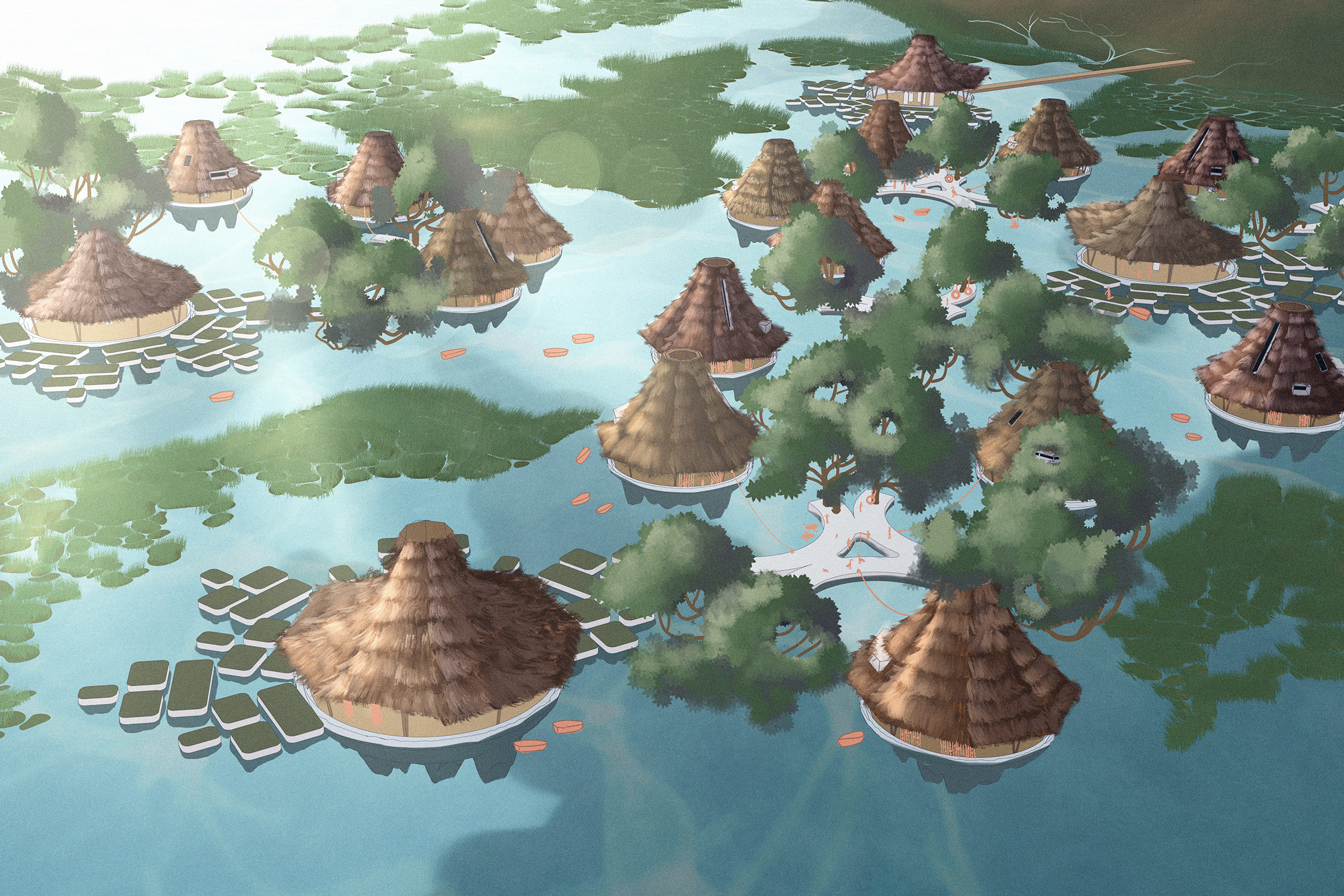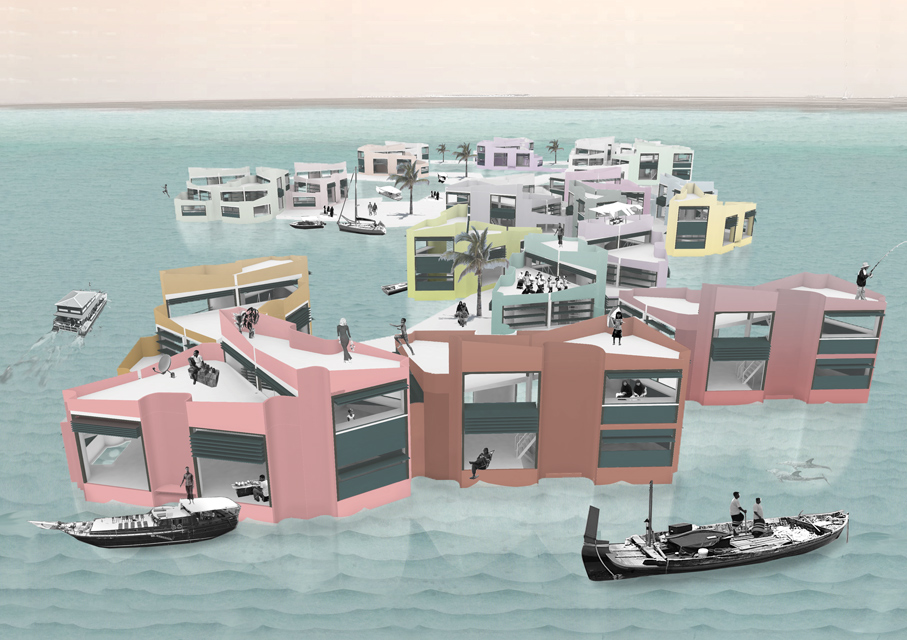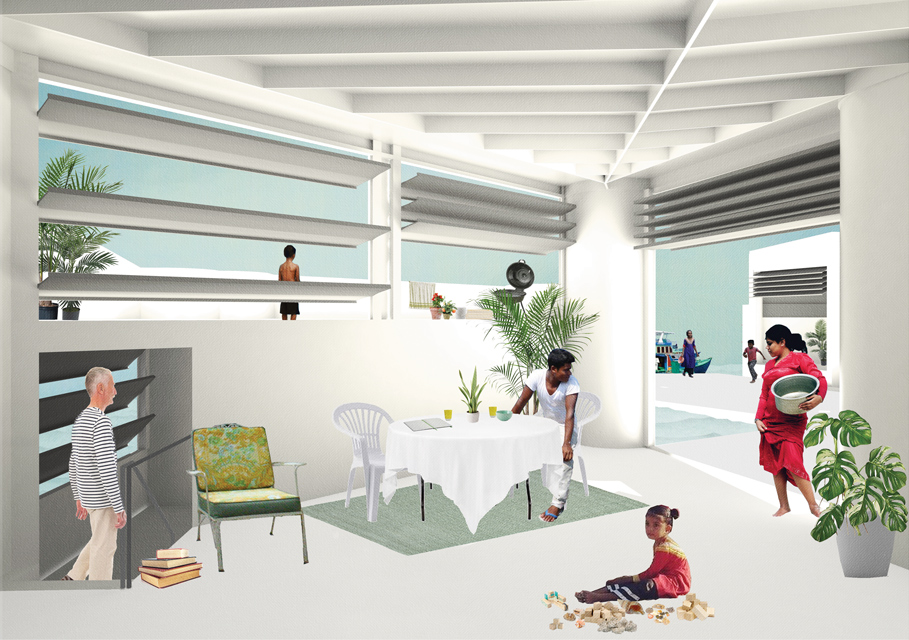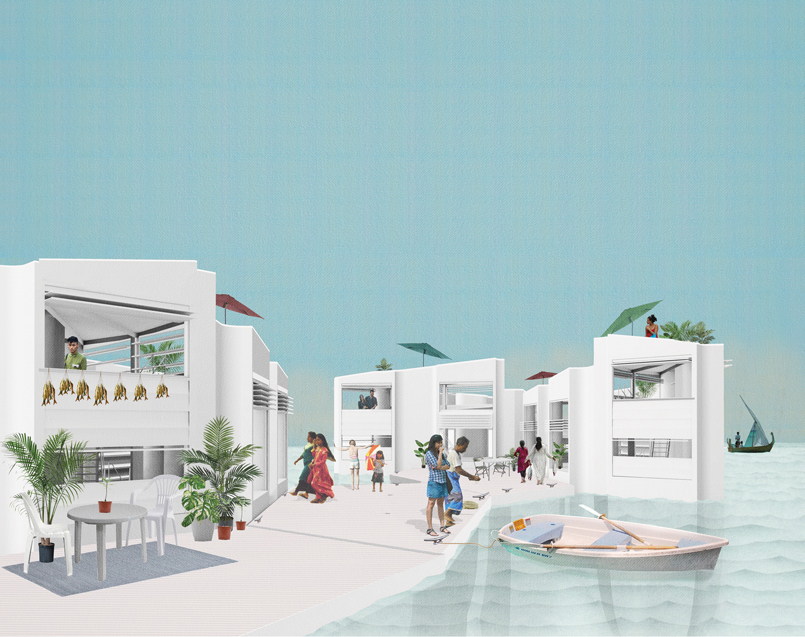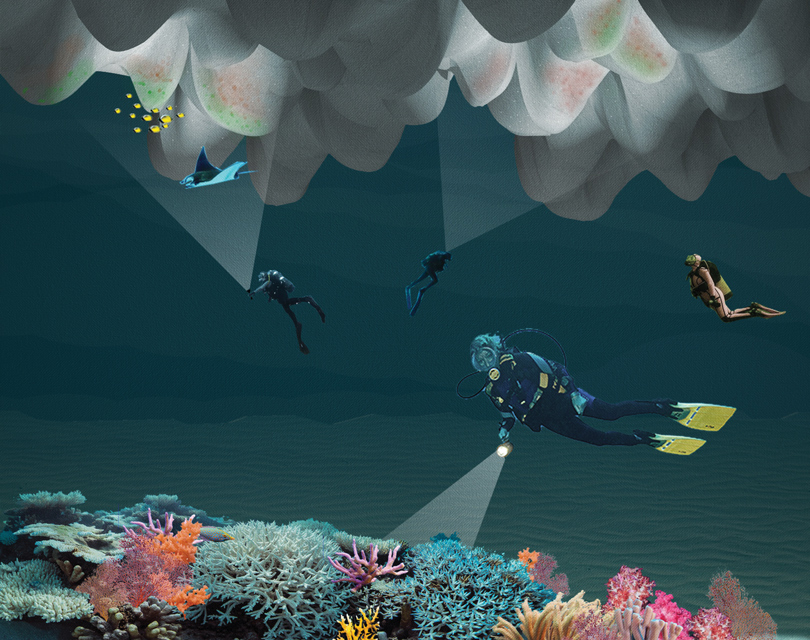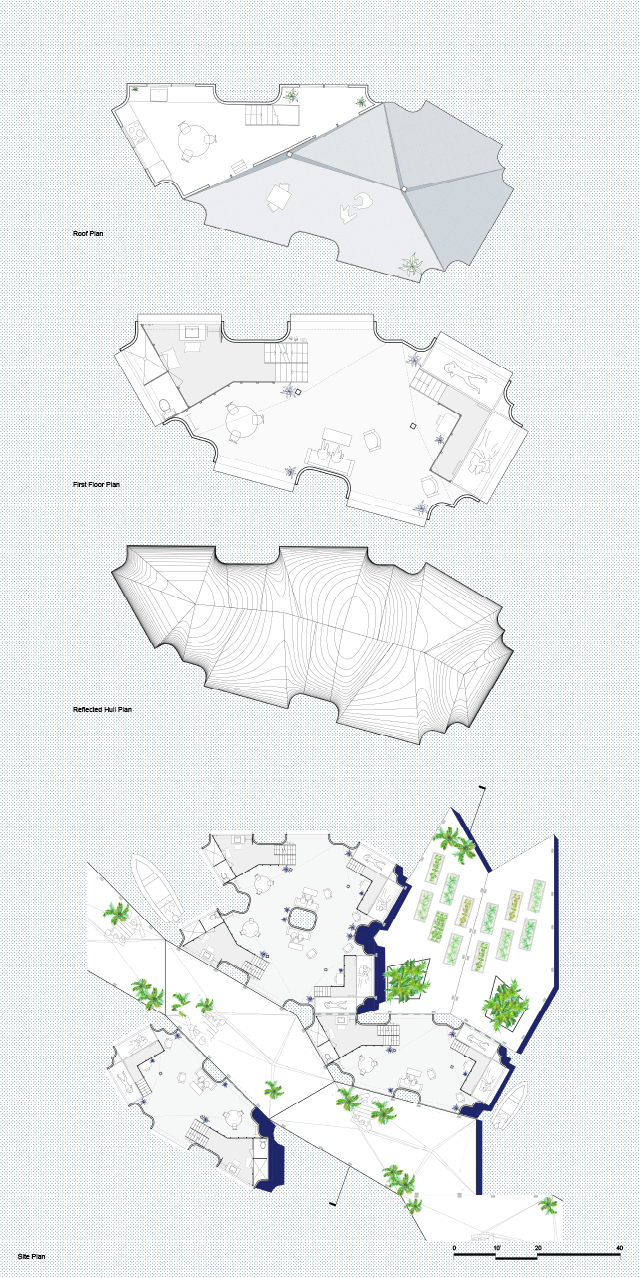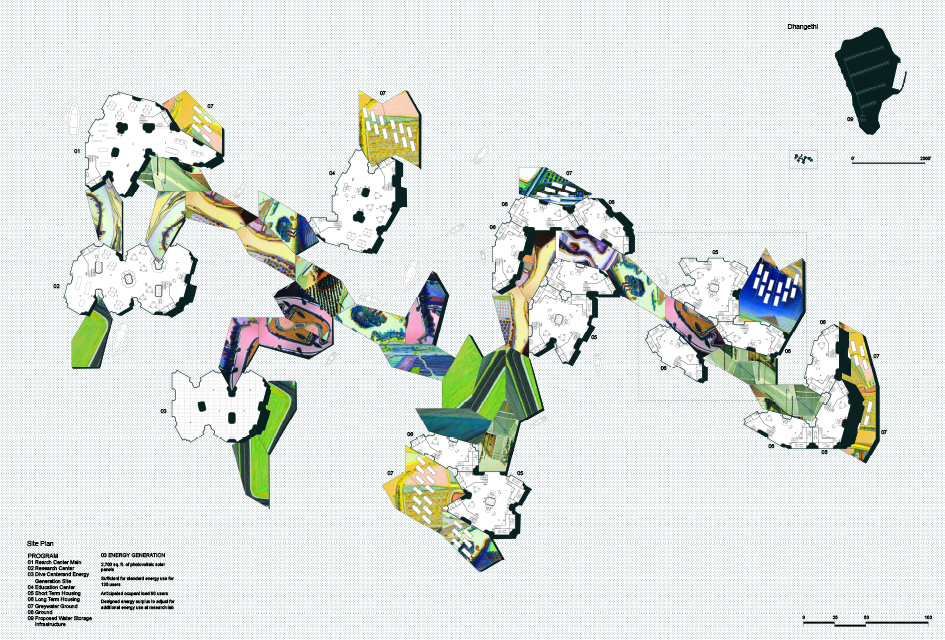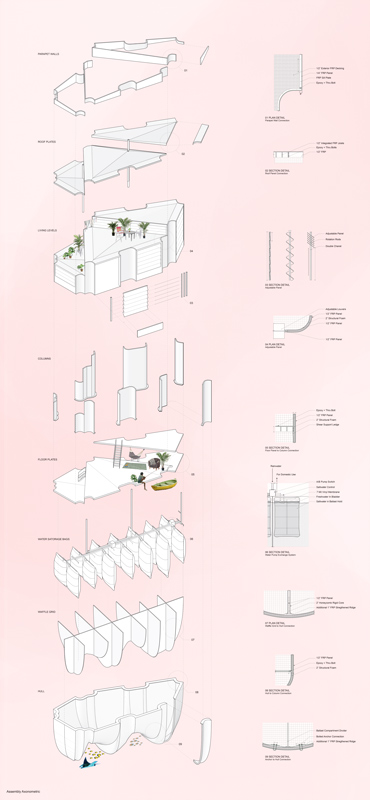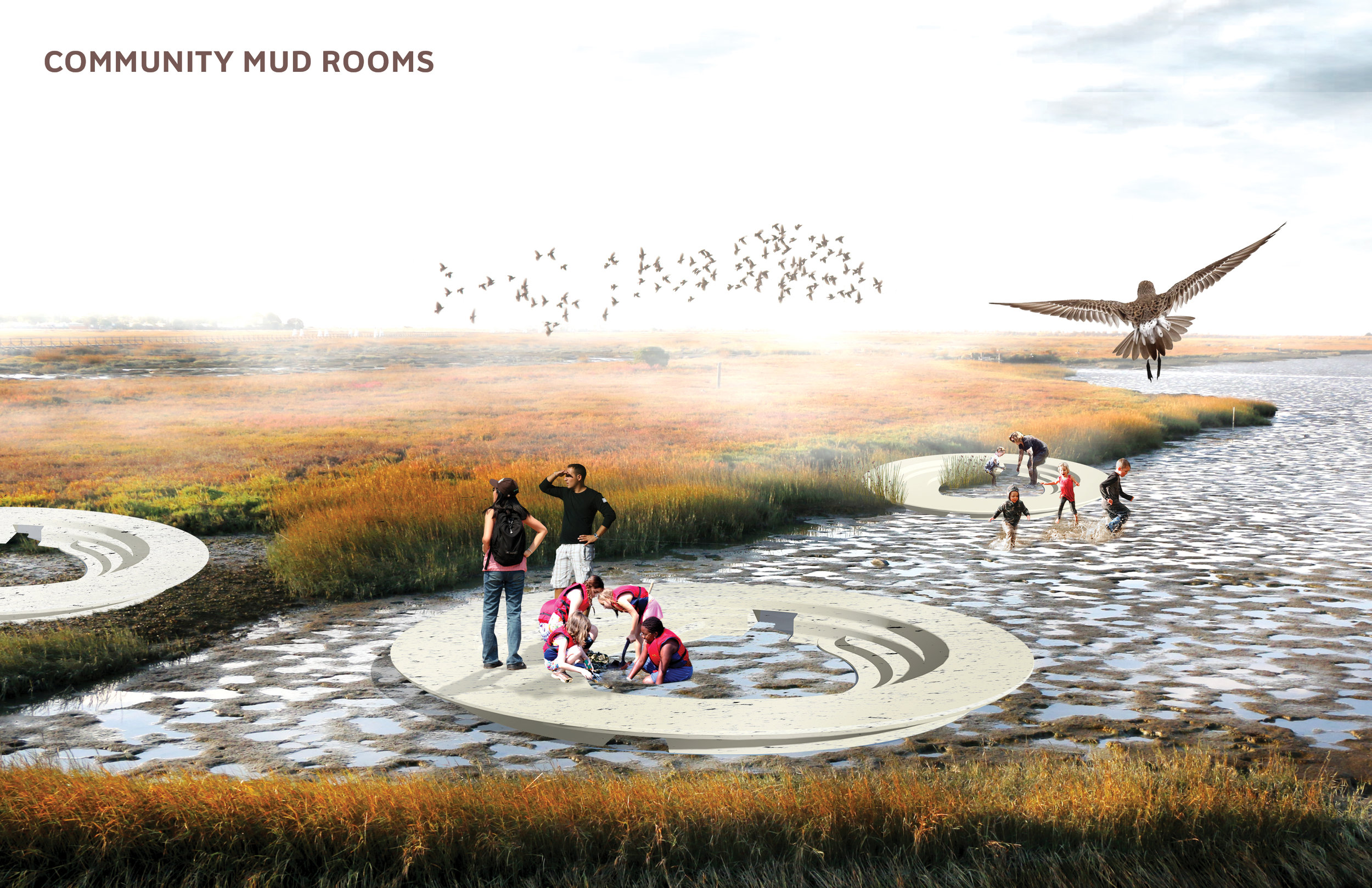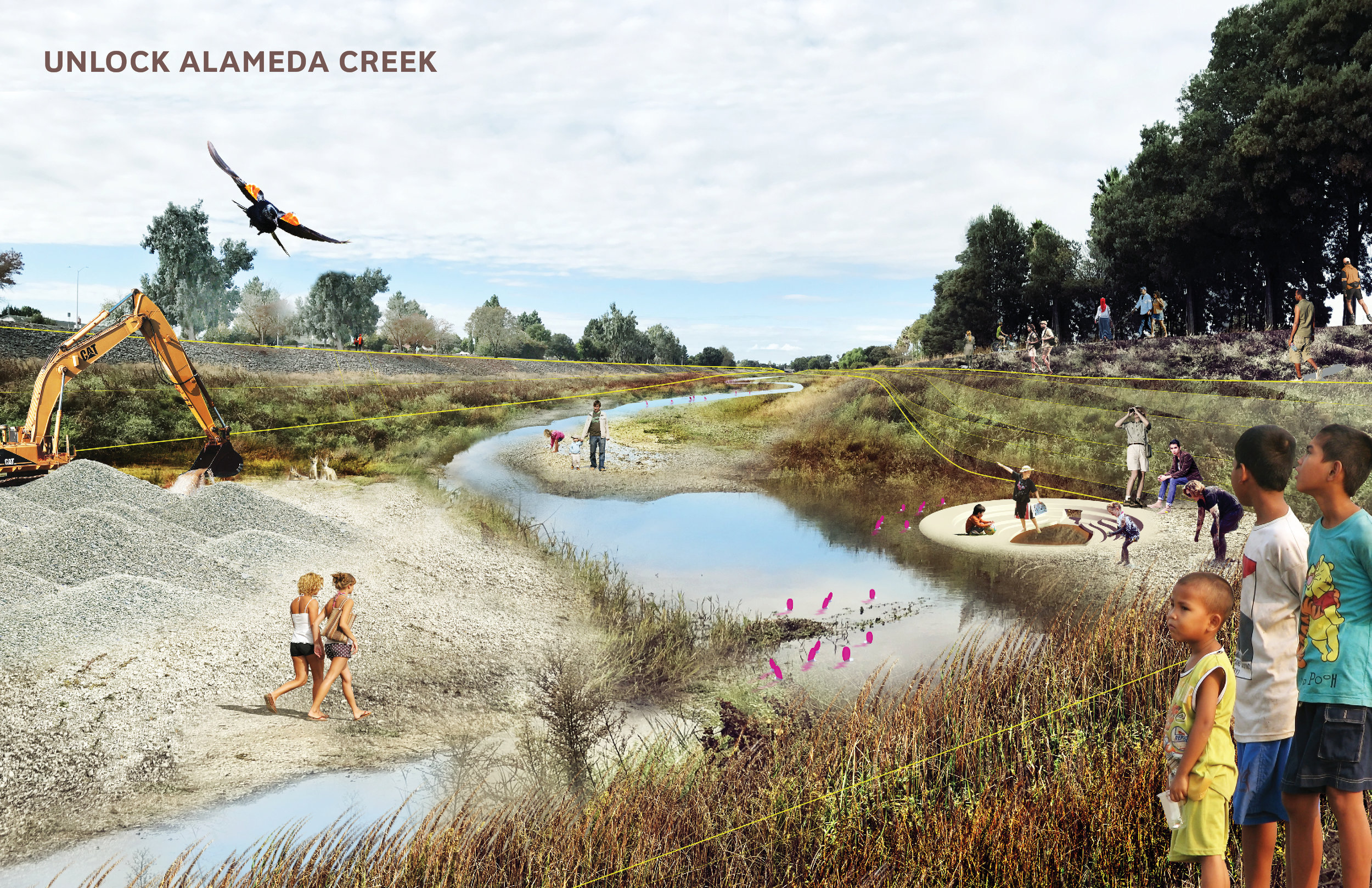Public Sediment for Alameda Creek, a collaborative project developed by an interdisciplinary team that includes AEL directors Adam Marcus, Margaret Ikeda, and Evan Jones, has received $31.4 million in implementation funding from the State of California.
Read MoreAdam Marcus Receives GSAPP Incubator Prize from Columbia University
Adam Marcus has been selected as one of six recipients of the 2019-2020 GSAPP Incubator Prize, an initiative by Columbia University Graduate School of Architecture, Planning and Preservation to support projects created by GSAPP alumni that advance environmental concerns in architecture and its related fields.
Read MoreBuoyant Ecologies Float Lab Launches in San Francisco Bay
On August 27, 2019, the Architectural Ecologies Lab launched the Buoyant Ecologies Float Lab in San Francisco Bay for a three-year deployment as a research platform and environmental demonstration project.
Read MoreBuoyant Ecologies Float Lab Featured in Redshift
The Buoyant Ecologies Float Lab, a project led by AEL directors Adam Marcus, Margaret Ikeda, and Evan Jones, is featured in an article in Redshift by Zach Mortice.
Read MoreBuoyant Ecologies Float Lab Featured in The Architect's Newspaper
The Buoyant Ecologies Float Lab, a project led by AEL directors Adam Marcus, Margaret Ikeda, and Evan Jones, is featured in an article in The Architect’s Newspaper by Drew Zeiba.
Link: “Architects rethink material and form with a new floating lab” by Drew Zeiba in The Architect’s Newspaper
Buoyant Ecologies Float Lab Featured in Hyperallergic
The Buoyant Ecologies Float Lab, a project led by AEL directors Adam Marcus, Margaret Ikeda, and Evan Jones, is featured in an article in Hyperallergic by Louis Bury. Bury writes: “This combination of civic integrity, design ingenuity, and scientific rigor is what makes the Float Lab so promising. Both open-ended academic research and imaginative creation can feel untethered from workaday concerns. But AEL’s speculative eco-collaborations demonstrate the practical potential of seemingly impractical approaches.”
Link: “Building an Architecture for Climate Change” by Louis Bury in Hyperallergic
Buoyant Ecologies Project Wins 2019 Impact Award
The Buoyant Ecologies project, led by AEL directors Adam Marcus, Margaret Ikeda, and Evan Jones, was recently awarded a $25,000 Impact Award by the Center for Impact at CCA. This year’s theme of the annual competition—"Invention and Innovation in Creative Re-use, Upcycling, and/or Sustainable Materials"—sought solutions from the CCA community that address climate change through inventing environmentally friendly materials or by transforming consumer behavior. The 2019 Impact Award is generously supported by Thurlow Washam, the Center for Cultural Innovation, and the Center for Impact’s ImpactFund.
“The Impact Award recognizes the ingenuity and vision that emanates from thinkers and makers in the CCA community,” says JD Beltran, director of the Center for Impact. “The 25,000 USD grants serve as seed money to incubate projects that hold the promise of long-term impact in addressing social and environmental problems.”
The Buoyant Ecologies project synthesizes architectural design, marine ecology, and digital fabrication to develop resilient waterfront structures that simultaneously enhance biodiversity and mitigate coastal erosion. The team will test 3D-printed prototypes for ecological substrates—using calcium carbonate and advanced composites—on the newly deployed Buoyant Ecologies Float Lab, a scientific laboratory anchored off Oakland’s Middle Harbor Shoreline Park. Building on five years of research, the team is working in collaboration with the Benthic Lab at Moss Landing Marine Laboratories, manufacturer Kreysler & Associates, and the Port of Oakland.
“This project began as pure speculation—the notion that floating buildings could provide ecological benefit—and has grown into a robust, multidisciplinary research initiative,” explain the project leaders.
In addition to Ikeda, Jones, and Marcus, the winning Buoyant Ecologies team consists of CCA adjunct professors Alex Schofield and CCA Architecture students Vishnu Balunsat, Sean Cunningham, Joshua Eufinger, Viviani Isnata, Mithila Jagtap, Cassady Kenney, Cristian Laurent, Peter Pham, and Maria Ulloa.
Jurors for the 2019 Impact Award included Kristen DiStefano, associate director of Atelier Ten; George Henry Hines, founder and CEO of GHH Innovations; Deborah Munk, director of the Artist in Residence (AIR) Program at Recology; CCA associate professor Tim Smith, CCA MBA in Design Strategy program; and Mawuli Tugbenyoh, former commission liaison to the mayor of San Francisco.
Marcus, Roberts, and Falliers Present at Next Earth Conference at UCSB
Architectural Ecologies Lab faculty Adam Marcus, Leslie Carol Roberts, and Chris Falliers are participating this month in the conference Next Earth: Teaching Climate Change Across the Disciplines, hosted by the Environmental Humanities Initiative at the University of California, Santa Barbara. The conference brings together critical climate and sustainability educators of every discipline, from the arts and humanities to the human and social sciences and the natural sciences, with a focus on sharing ideas to accelerate climate education and action in California and beyond. The conference is nearly carbon-neutral in that it takes place online and greatly reduces the enormous carbon footprint of the typical academic conference.
Marcus, Roberts, and Falliers are presenting The Ecopoesis Project, a a multi-year sequence of collaborative, interdisciplinary think-tanks exploring front-line concerns around ecology, climate, and spatial expression. Their presentation “The Ecopoesis Project: Advocating Logics of Future Coexistence” is part of the “Creative Pedagogies of Climate Change” panel and can be viewed online.
Buoyant Ecologies Students Win Merit Award from AIA Los Angeles
Master of Architecture students Marwan Bamasood and Eric Soifer from the fall 2018 Buoyant Ecologies Maldives studio have been selected for a 2x8: Echange Merit Award and $2,500 scholarship by the American Institute of Architects Los Angeles chapter for their project Suitcase Archipelago.
The 2x8: Exchange is a three-pronged program that provides students the opportunity to submit their work for the competition, be a part of the student exhibition, as well as provide scholarship opportunities. Now in its 13th iteration, the competition received participation from 16 schools throughout the state to participate in the annual show. Each school selects two students to represent the program in the competition. The winning student projects are on exhibition at the Helms Design Center in Culver City through June 7.
The Buoyant Ecologies Maldives advanced Integrated Building Design studio, led by CCA faculty Margaret Ikeda, and Evan Jones, is part of an ongoing research partnership between CCA, Autodesk's Pier 9 Workshop, Kreysler & Associates, and the Benthic Lab at Moss Landing Marine Laboratories. The research is focused on developing innovative material approaches to resilient waterfront structures.
Suitcase Archipelago proposes an expandable and adaptable floating community for the Maldives that considers the culture of its residents in the design of a kit of reconfigurable parts that allow for a variety of architectural scenarios. From the jury citation: "The strongest asset of this project is the programmatic thinking and the systematic approach to how the components of this resort interconnect and how they approached sustainability, which is otherwise a byproduct or a waste, and turning into a positive by creating a consumable product for the resort. There was a really big depth of thinking beyond just the esthetic and the architecture.”
Floating Cities Exhibition Opens in Los Angeles
On April 13, the exhibition Floating Cities, curated by Anthony Fontenot, opened at the WUHO Gallery in Los Angeles. The show features a catalog of various floating typologies from around the world, including floating houses, art projects, landscapes, infrastructure (bridges, tunnels, roads), and floating cities. It includes the Buoyant Ecologies Float Lab, a prototype for a floating breakwater designed by the Architectural Ecologies Lab. Also featured in the show are projects by Ant Farm + WORK AC, Lateral Office, Aptum Architecture with CEMEX Research Group, Archigram, Bjarke Ingels Group, Blue Frontiers, Rem Koolhaas and Madelon Vriesendorp, Kohn Pedersen Fox Associates, MOS Architects, NLE Architects, Morphosis Architects, and others.
The show is open until May 5. Later this year it will travel to Louisiana and Miami.
Buoyant Ecologies Students Selected for ACSA / AIA COTE Top Ten
Bachelor of Architecture students Viviani Isnata and Maria Ulloa from the fall 2018 Buoyant Ecologies Maldives studio have been announced as winners of the AIA COTE Top Ten / Innovation 2030 Student Design Competition.
The American Institute of Architects Committee on the Environment (AIA COTE), in partnership with Association of Collegiate Schools of Architecture (ACSA), selected the recipients of the national awards. The competition recognizes ten exceptional studio projects that demonstrate designs moving towards carbon-neutral operation through creative and innovative integration of design strategies such as daylighting, passive heating and cooling, materials, water, energy generation, and sustainable systems. The program challenged students to submit projects that use a thoroughly integrated approach to architecture, natural systems, and technology to provide architectural solutions that protect and enhance the environment.
Jurors included David Dowell (El Dorado Inc.), Bradford Grant (Howard University), Matthew Noblett (Behnisch Architekten/Partners), and Mary Demro (Montana State University).
The Buoyant Ecologies Maldives advanced Integrated Building Design studio, led by CCA faculty Margaret Ikeda, and Evan Jones, is part of an ongoing research partnership between CCA, Autodesk's Pier 9 Workshop, Kreysler & Associates, and the Benthic Lab at Moss Landing Marine Laboratories. The research is focused on developing innovative material approaches to resilient waterfront structures. This award marks the sixth CCA student project from the Buoyant Ecologies studio sequence to be recognized by the AIA/ACSA COTE Top Ten.
The selected project, Shore of a Hundred Islands by Viviani Isnata and Maria Ulloa, proposes a self-sustaining, buoyant community that blurs the line between land and water. The floating buildings provide habitats for both humans and non-human species such as marine invertebrates and plants. The buildings integrate a modular system of floating wetlands that treats wastewater and benefits the surrounding ecosystem. From the jury citation: "Shore of a Hundred Islands presents an imaginative approach towards the growing issue of rising sea levels. It demonstrates a compelling intersection of traditional form and modern function while also giving careful consideration to aquatic ecology. Within strict programmatic and environmental constraints, the design provides solutions to cultivating both community and privacy.
Public Sediment for Alameda Creek Wins ASLA-NY Honor Award
The Public Sediment team (which includes AEL directors Adam Marcus, Margaret Ikeda, and Evan Jones) has won an Honor Award from the American Society of Landscape Architects, New York Chapter, for their Unlock Alameda Creek proposal. The project was developed within the framework of the Resilient By Design Bay Area Challenge, a year-long research and design initiative exploring new design approaches to sea level rise and climate change.
Read MorePublic Sediment Awarded Grant from NFWF and NOAA
The National Fish and Wildlife Foundation (NFWF) and the National Oceanic and Atmospheric Adminisrtation (NOAA) recently awarded a coastal adaptation grant to the Public Sediment project, a collaborative endeavor led by SCAPE Landscape Architecture that includes AEL directors Adam Marcus, Margaret Ikeda, and Evan Jones. The grant is in partnership with the California State Coastal Conservancy.
The National Coastal Resilience Fund program supports identified priority regions to enhance fish and wildlife habitats and improve the resilience of coastal communities. In total, $28.9 million of funding were distributed across 35 grants. One of the grants was awarded to the California State Coastal Conservancy for “Gravel Beach and Berm Design for Shorebird Habitat, Erosion Control and Flood Protection” in California, known in the Public Sediment project as the Pebble Dune. The funding will support continued design work on the Public Sediment project, developed through the Resilient By Design Competition, and enhance flood protection infrastructure, wetlands restoration, and public access to 1,300 acres of shoreline.
The Public Sediment team is led by SCAPE Landscape Architecture and includes Arcadis, The Dredge Research Collaborative, TS Studio, UC Davis Department of Human Ecology and Design, Cy Keener, and Architectural Ecologies Lab. See this link for more info on the project.
Public Sediment for Alameda Creek Wins AIACC Award
The Public Sediment team (which includes AEL directors Adam Marcus, Margaret Ikeda, and Evan Jones) has won an AIA California Merit Award in the Urban Design category, for their Unlock Alameda Creek proposal. The project was developed within the framework of the Resilient By Design bay Area Challenge, a year-long research and design initiative exploring new design approaches to sea level rise and climate change.
Read MoreBuoyant Ecologies Float Lab wins 2018 R+D Award
The Buoyant Ecologies Float Lab, a project led by CCA AEL directors Adam Marcus, Margaret Ikeda, and Evan Jones, has been selected for a 2018 R+D Award by Architect Magazine. The project builds upon four years of applied research into ecologically productive materials for waterfront structures, and it was developed in collaboration with marine ecologists at the Benthic Lab at Moss Landing Marine Laboratories and fiber-reinforced polymer (FRP) manufacturers at Kreysler & Associates. The Float Lab is a prototype for a floating breakwater that incorporates an ecologically optimized FRP substrate on the underside, which is designed to encourage the growth of diverse marine invertebrate habitats. The accumulation of marine life is optimized such that the resulting biomass helps to attenuate waves and potentially mitigate coastal erosion.
The jury for this year's R+D Awards consisted of Jackilin Hah Bloom and Florencia Pita of Pita & Bloom, Tom Chung of Leers Weinzapfel Associates, and Randy Deutsch of the University of Illinois Urbana-Champaign. In the award citation, juror Deutsch remarked "The research that this team took was in-depth, interdisciplinary, multidisciplinary, and collaborative. That and how they displayed the results over time was over-the-top impressive.”
The Float Lab recently received a permit from the San Francisco Bay Conservation and Development Commission for a three-year deployment at Middle Harbor Shoreline Park, located in the Port of Oakland. The prototype will be launched later this fall.
Buoyant Ecologies Students Win National Student Design Competition
Master of Architecture students Clare Hačko and Nicholas Scribner from the fall 2017 Buoyant Ecologies Maldives studio have been announced as winners of the AIA COTE Top Ten / Innovation 2030 Student Design Competition.
The American Institute of Architects Committee on the Environment (AIA COTE), in partnership with Association of Collegiate Schools of Architecture (ACSA), selected the recipients of the national awards. The competition recognizes ten exceptional studio projects that demonstrate designs moving towards carbon-neutral operation through creative and innovative integration of design strategies such as daylighting, passive heating and cooling, materials, water, energy generation, and sustainable systems. The program challenged students to submit projects that use a thoroughly integrated approach to architecture, natural systems, and technology to provide architectural solutions that protect and enhance the environment.
Jurors included Karin Bjorkman (Nola | Van Puersem Architects), Justin Brown, (MASS Design Group), Chris Chatto (ZGF Architects), Thomas Fisher (University of Minnesota), and Jeanne Gang & Juliane Wolf (Studio Gang).
The Buoyant Ecologies Maldives advanced Integrated Building Design studio, led by CCA faculty Margaret Ikeda, and Evan Jones, is part of an ongoing research partnership between CCA, Autodesk's Pier 9 Workshop, Kreysler & Associates, and the Benthic Lab at Moss Landing Marine Laboratories. The research is focused on developing innovative material approaches to resilient waterfront structures.
The selected project, Dis/Placement by Clare Hacko and Nicholas Scribner, proposes a floating community of fiber-reinforced polymer composite structures for the Maldives. The floating buildings integrate an innovative and dynamic bladder system that collects rainwater and provides ballast support for the structures. From the jury citation: "This interesting study brings attention to climate change and rising sea levels by imagining a floating community in the Maldives. The students understood how to work with a different ground planes and included an exploration of what it would be like if you could see a building from below. Above ocean the design is a simple modern style, while underwater “bladders” create ballast and an ocean microecosystem."
Adam Marcus, Margaret Ikeda, and Evan Jones to Present at UC Davis
On Wednesday, February 21, CCA faculty Adam Marcus, Margaret Ikeda, and Evan Jones will present the work of the Architectural Ecologies Lab as part of "Field Dispatches from Resilient By Design" panel discussion at the University of California, Davis.
Adam Marcus Presents at University of Sydney
On December 13, Adam Marcus presented the paper "Buoyant Ecologies: Material Logics for Sea Level Rise Adaptation" at the conference Sustaining the Seas: Fish, Oceanic Space, and the Politics of Caring at the University of Sydney in Australia. The paper presents the material-driven research of the Buoyant Ecologies project. The research brings together architects, marine ecologists, fabricators, and public agencies to develop innovative strategies for designing and constructing ecologically sensitive waterfront structures.
The conference, hosted by the University of Sydney Sustainable Fish Lab, features a range of speakers, including scientists, activists, and artists. For more information, see the conference website.
Public Sediment Presents Design Concepts
On November 15, Public Sediment, one of ten teams selected for the Resilient By Design Bay Area Challenge, presented research and design concepts to a public audience at the Contemporary Jewish Museum in San Francisco.
The team presented three proposals for investing in the San Francisco Bayland ecosystems to buffer vulnerable communities and species from the threats of sea level rise. The proposals incorporate research into ecologically performative materials, floating breakwaters, and aquatic species that CCA faculty Adam Marcus, Margaret Ikeda, and Evan Jones have been developing as part of the Buoyant Ecologies project. All projects are posted here and open to public feedback and comment until December 7, 2017.
Public Sediment is a multidisciplinary design team that views sediment as a core building block of resilience in San Francisco Bay. The team is led by SCAPE Landscape Architecture and includes the Buoyant Ecologies team, the Dredge Research Collaborative, Arcadis, TS Studio, the UC Davis Department of Human Ecology and Design, and the UC Davis Center for Watershed Sciences.
Buoyant Ecologies Research Presented at Designing Material Innovation Symposium
On October 27, CCA faculty Adam Marcus, Margaret Ikeda, and Evan Jones presented the Buoyant Ecologies Float Lab at the "Designing Material Innovation" symposium at California College of the Arts in San Francisco. The symposium convened leading figures from multiple fields to discuss projects that exemplify new approaches to material, fabrication, and design. The presentations and panels featured nationally and internationally distinguished speakers from architecture, engineering, industry, and materials science. The symposium was organized by Jonathan Massey of the University of Michigan's Taubman College and included a keynote presentation by Philippe Block of ETH Zurich. Presenters included Michael Bell of Columbia University, Michelle Kauffman of Google, Matthias Kohler of Gramazio Kohler, and many more.








